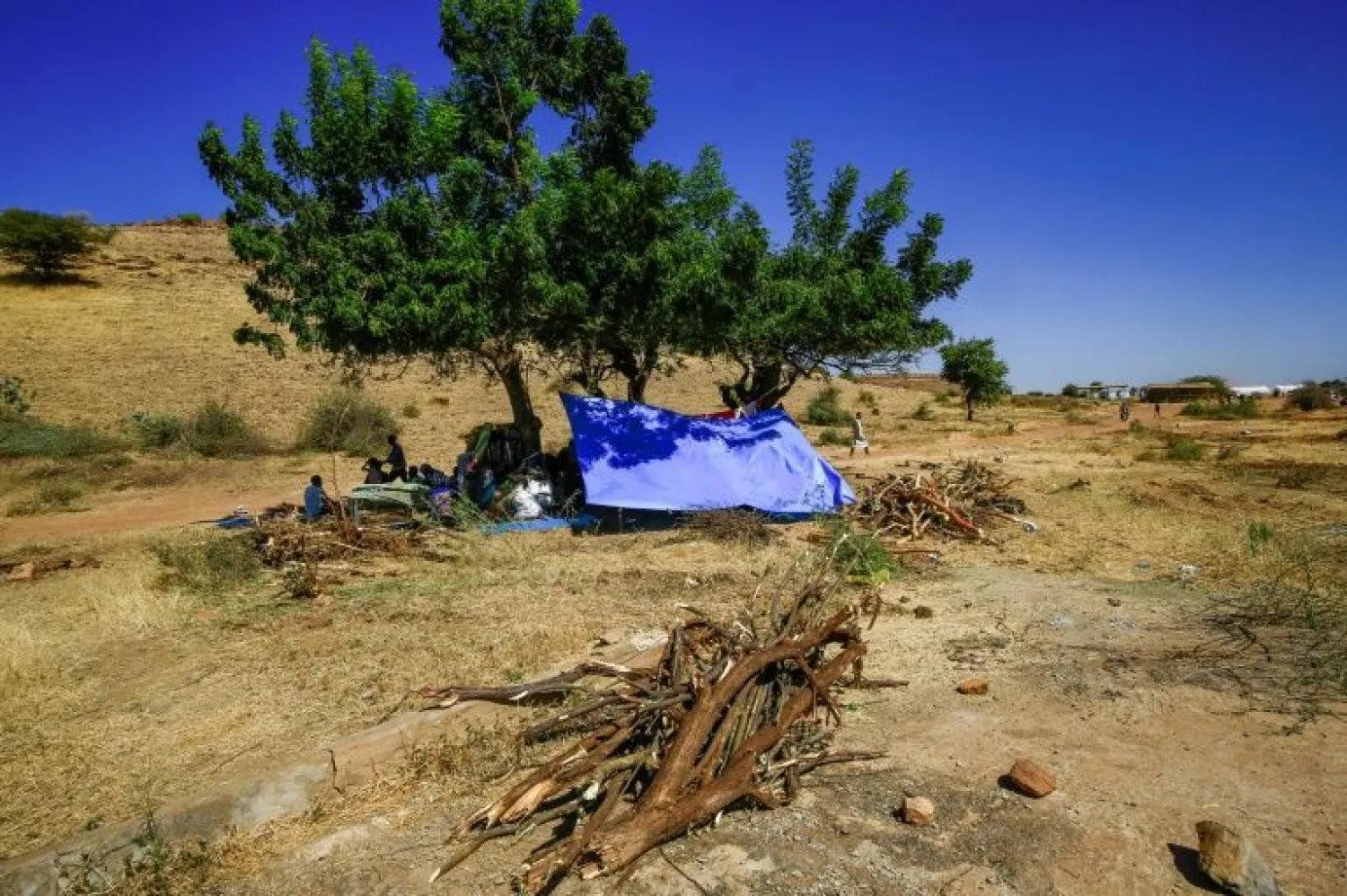Bulldozers are tearing down trees by the dozen to make way for shelters and provide firewood for refugees from Ethiopia's Tigray conflict at Sudan's Um Raquba reception camp.
It took two of the noisy machines operated by the camp's management just one hour to flatten 50 meters (yards) of acacias that are quickly seized upon by refugees to erect huts.
Zayet Wali, one of tens of thousands of refugees to have fled the northern Tigray region for eastern Sudan, says she has little choice but to use the wood.
"With my son, I pick up the trees that lie on the ground to build a shelter for my husband. He is very sick and I have to protect him from the sun," says the 65-year-old.
But in her office in Gedaref, Amira Elgadal is appalled.
"Since the beginning of November, we have been taking in thousands of refugees and the price is heavy," says the head of Gedaref state health department.
"Every day the equivalent of 65 square meters (700 square feet) of trees disappears. This is a serious blow to the environment," she told AFP.
Gedaref has a desert climate, and the land is cultivated during the rainy season. But during other months it dries up and cracks.
In these semi-arid regions, acacia trees are important from an ecological point of view. Their destruction has harmful consequences for several plant and animal species.
"There isn't a single organization here that's concerned about the environment," says Elgadal.
"We have asked the United Nations High Commissioner for Refugees and the Sudanese Commission for Refugees to provide shelters that do not use wood, such as tents for example, and to deliver gas bottles to avoid using logs," she explains.
There are already 2,100 huts and another 3,000 are expected to be built.
For the camp refugees, who currently number 10,000, their main concern is to have a roof over their heads as well as wood for cooking.
Sitting in the shade of a tree, Abadi Grazdier, 70, cooks his meal with pieces of wood scraped together.
"In my country, I have never cut a branch, it is forbidden, but here I don't have any other solution," he says.
More than 45,000 people have fled Tigray for Sudan since Ethiopian Prime Minister Abiy Ahmed launched a military offensive against the leaders of the northern region of Ethiopia on November 4, vowing to install "legitimate" institutions.
Upon arrival, each refugee seeks a tree to escape the blazing sun and fiercely defends their place in the shade. Within a few weeks, some of them turn into woodcutters.
Armed with an ax, 32-year-old Kanfa Amari and his friends are doing some logging.
"Today we went up a small hill, cut down a tree and shared it," he says.
The wood they gathered is for cooking rather than construction. Outside each hut there are piles of such wood.
"Of course, if we were given coal or gas canisters, we wouldn't touch the trees, but what can we do? We have to eat," says Amari.









